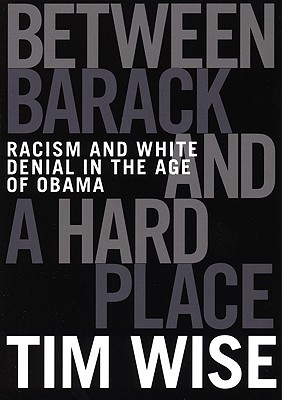Affirmative action refers to a set of policies and practices within a government or organization seeking to benefit marginalized groups. Historically and internationally, support for affirmative action has been justified by the idea that it may help with bridging inequalities in employment and pay, increasing access to education, and promoting diversity, and redressing alleged wrongs, harms, or hindrances. It has often been criticized for being anti white.
Racial discrimination is any discrimination against any individual on the basis of their race, ancestry, ethnicity, and/or skin color and hair texture. Individuals can discriminate by refusing to do business with, socialize with, or share resources with people of a certain group. Governments can discriminate explicitly in law, for example through policies of racial segregation, disparate enforcement of laws, or disproportionate allocation of resources. Some jurisdictions have anti-discrimination laws which prohibit the government or individuals from being discriminated based on race in various circumstances. Some institutions and laws use affirmative action to attempt to overcome or compensate for the effects of racial discrimination. In some cases, this is simply enhanced recruitment of members of underrepresented groups; in other cases, there are firm racial quotas. Opponents of strong remedies like quotas characterize them as reverse discrimination, where members of a dominant or majority group are discriminated against.
Racial color blindness refers to the belief that a person's race or ethnicity should not influence their legal or social treatment in society.
Whiteness studies is the study of the structures that produce white privilege, the examination of what whiteness is when analyzed as a race, a culture, and a source of systemic racism, and the exploration of other social phenomena generated by the societal compositions, perceptions and group behaviors of white people. It is an interdisciplinary arena of inquiry that has developed beginning in the United States from white trash studies and critical race studies, particularly since the late 20th century. It is focused on what proponents describe as the cultural, historical and sociological aspects of people identified as white, and the social construction of "whiteness" as an ideology tied to social status.

Timothy Jacob Wise is an American activist and writer on the topic of race. He is a consultant who provides anti-racism lectures to institutions.

Patricia Hill Collins is an American academic specializing in race, class, and gender. She is a distinguished university professor of sociology emerita at the University of Maryland, College Park. She is also the former head of the Department of African-American Studies at the University of Cincinnati. Collins was elected president of the American Sociological Association (ASA), and served in 2009 as the 100th president of the association – the first African-American woman to hold this position.
Critical race theory (CRT) is an interdisciplinary academic field focused on the relationships between social conceptions of race and ethnicity, social and political laws, and media. CRT also considers racism to be systemic in various laws and rules, and not only based on individuals' prejudices. The word critical in the name is an academic reference to critical theory rather than criticizing or blaming individuals.
Reverse racism, sometimes referred to as reverse discrimination, is the concept that affirmative action and similar color-conscious programs for redressing racial inequality are forms of anti-white racism. The concept is often associated with conservative social movements and reflects a belief that social and economic gains by Black people and other people of color cause disadvantages for white people.

Kimberlé Williams Crenshaw is an American civil rights advocate and a leading scholar of critical race theory. She is a professor at the UCLA School of Law and Columbia Law School, where she specializes in race and gender issues.
The concept of race or ethnicity in contemporary Singapore emerged from the attitudes of the colonial authorities towards race and ethnicity. Before the early 2000s, the four major races in Singapore were the Chinese, Malays, Indians and Eurasians. Today, the Chinese-Malay-Indian-Others (CMIO) model is the dominant organising framework of race in Singapore. Race informs government policies on a variety of issues such as political participation, public housing and education. However, the state's management of race, as well as the relevance of the CMIO model, has been a point of contention amongst some in recent years.

Joe Richard Feagin is an American sociologist and social theorist who has conducted extensive research on racial and gender issues in the United States. He is currently the Ella C. McFadden Distinguished Professor at Texas A&M University. Feagin has previously taught at the University of Massachusetts, Boston, University of California, Riverside, University of Texas at Austin, and the University of Florida.
Racism in North America and the state of race relations there are described in this article. Racism manifests itself in different ways and severities throughout North America depending on the country. Colonial processes shaped the continent culturally, demographically, religiously, economically, and linguistically. Racism was part of that process and is exemplified throughout North America today but varies regionally.
Laissez-faire racism is closely related to color blindness and covert racism, and is theorised to encompass an ideology that blames minorities for their poorer economic situations, viewing it as the result of cultural inferiority. The term is used largely by scholars of whiteness studies, who argue that laissez-faire racism has tangible consequences even though few would openly claim to be, or even believe they are, laissez-faire racists.

White-Washing Race: The Myth of a Color-Blind Society is a 2005 book arguing that racial discrimination is still evident on contemporary American society. The book draws on the fields of sociology, political science, economics, criminology, and legal studies. The authors argue that the inequalities which prevail in America today, especially with regard to wages, income, and access to housing and health care, are the effects of either cultural or individual failures.

The sociology of race and ethnic relations is the study of social, political, and economic relations between races and ethnicities at all levels of society. This area encompasses the study of systemic racism, like residential segregation and other complex social processes between different racial and ethnic groups.

Between Barack and a Hard Place: Racism and White Denial in the Age of Obama is a non-fiction book by the anti-racist writer and educator Tim Wise, published by City Lights in 2009.
Societal racism is a type of racism based on a set of institutional, historical, cultural and interpersonal practices within a society that places one or more social or ethnic groups in a better position to succeed and disadvantages other groups so that disparities develop between the groups. Societal racism has also been called structural racism, because, according to Carl E. James, society is structured in a way that excludes substantial numbers of people from minority backgrounds from taking part in social institutions. Societal racism is sometimes referred to as systemic racism as well.

Dorceta E. Taylor is an American environmental sociologist known for her work on both environmental justice and racism in the environmental movement. She is the senior associate dean of diversity, equity, and inclusion at Yale School of the Environment, as well as a professor of environmental justice. Prior to this, she was the director of diversity, equity, and inclusion at the University of Michigan's School of Environment and Sustainability (SEAS), where she also served as the James E. Crowfoot Collegiate Professor of Environmental Justice. Taylor's research has ranged over environmental history, environmental justice, environmental policy, leisure and recreation, gender and development, urban affairs, race relations, collective action and social movements, green jobs, diversity in the environmental field, food insecurity, and urban agriculture.
Eduardo Bonilla-Silva is an American sociologist and professor of sociology at Duke University. He was the 2018 president of the American Sociological Association.
Austin Channing Brown is an American writer and public speaker. She is Executive Producer of web series The Next Question and the author of I’m Still Here: Black Dignity in a World Made for Whiteness, which became a New York Times best seller following the murder of George Floyd and subsequent protests. Her work is focused on sharing and platforming black women experiences in contemporary America. She continues to hold a "day job" working as Resident Director and Multicultural Liaison for Calvin College where she manages student resident halls.








